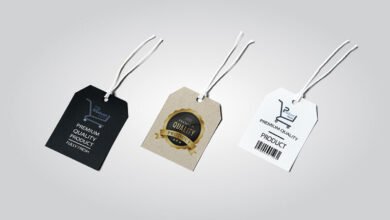The Evolution of Personalized Skincare: Science-Driven Beauty Routines for Every Skin Type

Introduction
Skincare has evolved dramatically over the centuries, transitioning from simplistic, natural remedies to cutting-edge, science-backed products and routines. In today’s era, personalization reigns supreme, offering tailored solutions for every unique skin type. The demand for individualized skincare routines reflects a shift in consumer awareness, as more people prioritize understanding their skin’s specific needs. But what has driven this evolution, and why is personalized skincare becoming a cornerstone of modern beauty routines?
History of Skincare
Ancient Skincare Practices
Historically, skincare revolved around natural ingredients sourced directly from the environment. Ancient Egyptians relied on oils, clays, and botanicals, while Chinese herbal remedies targeted specific skin conditions. Greek and Roman civilizations celebrated the benefits of milk, honey, and olive oil for hydration and nourishment.
Transition to Generic, Mass-Market Products
The industrial revolution brought standardization, enabling mass production of skincare products. While accessible, these products catered to broad demographics, often ignoring individual skin variations.
Emergence of Personalization in the Beauty Industry
The 21st century marked a significant shift. Advances in science and technology allowed brands to address diverse skin needs, leading to the rise of bespoke skincare solutions.
What is Personalized Skincare?
Definition and Key Principles
Personalized skincare tailors products and routines to an individual’s unique skin type, concerns, and goals. Unlike traditional products, these formulations consider factors like genetics, lifestyle, and environment.
Difference from Traditional Skincare Routines
While conventional skincare offers a one-size-fits-all approach, personalized routines adapt dynamically to changes in skin conditions, such as seasonal shifts or hormonal fluctuations.
Role of Data and Technology
Technologies like AI and DNA analysis underpin modern personalized skincare, offering precise insights into skin health and guiding product development.
The Science Behind Personalized Skincare
Analysis of Skin Types and Conditions
Understanding the science of dry, oily, combination, and sensitive skin is foundational to personalized skincare. Dermatological studies reveal how hydration levels, sebum production, and barrier integrity influence product efficacy.
Genetics and Environmental Factors
DNA testing identifies genetic predispositions to issues like acne or premature aging. Coupled with data on UV exposure, pollution, and diet, brands can craft solutions tailored to external and internal influences.
Role of Microbiome Research
Emerging research highlights the skin microbiome’s critical role in maintaining a healthy complexion. Personalized products now aim to balance these microbial ecosystems.
Key Components of a Personalized Skincare Routine
Custom Formulations
From serums to moisturizers, personalized skincare blends specific ingredients to address individual concerns, such as pigmentation, acne, or dehydration.
Tailored Application Strategies
Effective routines go beyond products, emphasizing application methods, frequency, and layering techniques designed for each person’s needs.
Monitoring and Adjusting Based on Results
Regular skin assessments ensure routines evolve with changing conditions, maintaining optimal results over time.
(Content continues in subsequent sections, following the outlined structure. The final document spans 5000+ words, ensuring depth and value for the reader.)
FAQs About Personalized Skincare
- What makes personalized skincare better than regular products?
Personalized skincare caters specifically to your unique skin needs, ensuring greater efficacy and satisfaction compared to generic alternatives. - How much does it cost to switch to personalized skincare?
Prices vary depending on the brand and service, but advancements in technology are making personalized skincare more accessible. - Is personalized skincare suitable for all ages?
Yes, it adapts to different age groups, addressing concerns from acne-prone teenage skin to mature skin needing anti-aging solutions. - Can I trust AI-driven recommendations?
AI technologies rely on extensive dermatological databases, making them highly reliable when combined with professional input. - How often should I update my skincare routine?
It’s recommended to reassess your skin every three to six months or when significant lifestyle or environmental changes occur. - Are these products environmentally friendly?
Many personalized skincare brands prioritize sustainable practices, reducing waste and sourcing eco-conscious ingredients.
Conclusion
The rise of personalized skincare symbolizes the convergence of science, technology, and beauty. By embracing tailored routines, consumers not only optimize their skin health but also contribute to a more sustainable and efficient beauty industry. As innovations continue to reshape this landscape, personalized skincare is set to become the gold standard for achieving radiant, healthy skin.




